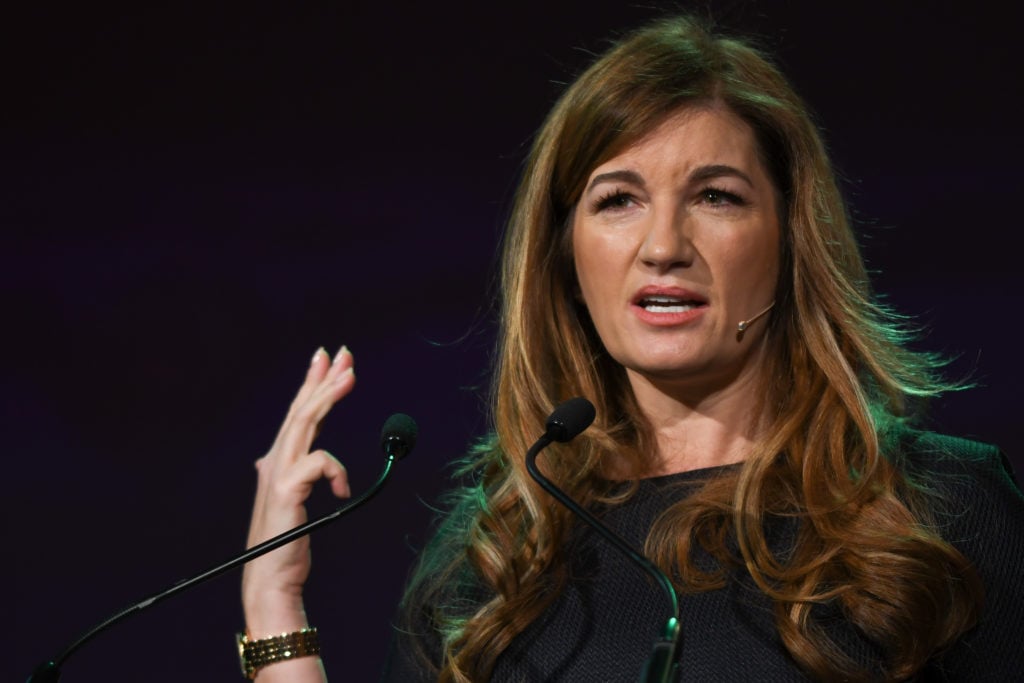'£1bn' Karren Brady statement shows West Ham may have one eye on full takeover

Yesterday at 05:10 PM
Recent protests from West Ham supporters over the club’s ticketing policies are the latest in a long line aimed at the board. For those disenfranchised fans, a takeover is the dream.
The situation is complicated, however.
David Sullivan is the largest shareholder but his 38.8 per cent means that he does not have majority control of West Ham.
Nor does Daniel Kretinsky, who despite having the option to buy a controlling stake in the club at a set price has elected not to move from the 27 per cent he bought for around £180m in 2021.
Jack Sullivan, David’s son, has also explained that the Hammers have already spent the Kretinsky cash to repay loans taken out during the pandemic
Meanwhile, Vanessa Gold, daughter of the late David Gold, is looking to sell a chunk of her 17 per cent stake but has had no luck so far.
That is despite club vice-chair Karren Brady having looked for investment in the Middle East.
Incidentally, Baroness Brady values West Ham at £800m, a valuation that might limit the number of investors who are willing to pay up in exchange for a minority equity stake.
One outlet claimed last month that the Irons were in talks over a full takeover, although it has since been more reliably reported that club sources have rejected that.
However, Karren Brady has now signalled that, while it might not be in their immediate plans, the current regime might have one eye on their exit strategy.
Karren Brady criticises independent football regulator
As the public face of West Ham, Brady has been one of the main critics of the imminent independent regulator for English football.
And in the absence of any vocal opposition from the so-called Big Six – who are worried about a European Super League-style backlash from fans – that makes her one of the bill’s biggest opponents.
Now, Brady has used her profile as a member of the House of Lords to implore the bill’s authors to: “protect our clubs without suffocating them.”
The 55-year-old has previously warned that the regulator could stifle foreign investment in the game.
With any investment in the East London club likely to come from overseas, that could well be a nod to Brady’s plans to one day court investment in West Ham itself.
Among other capabilities, the independent regulator will have backstop powers to introduce a new distribution system between the Premier League and EFL and prevent breakaway leagues.
Why West Ham and other clubs oppose the football regulator
The main bone of contention that most clubs, including West Ham, have with the independent regulator is how it could force them to give more cash to the rest of the pyramid.
The view, which is shared by Brady, suggests that Premier League clubs already give ample monies to the EFL and beyond in the form of solidarity and parachute payments.
“I want to focus my remarks on one specific area: the backstop power on financial distributions,” she told in the House of Lords.
“Premier League clubs would have no fear of the regulator making an independent determination about whether the funding we voluntarily provide to the EFL—in addition to our own substantial revenues—is sufficient to deliver financial stability for well-run clubs.
“This is because, by any objective measure, it is. For example, every single Championship club receives £7.8 million from the Premier League, amounting to between 20% and 40% of that club's typical annual revenue.
“I will not dwell on the fact that the EFL has just signed a near-£1 billion domestic broadcast deal, helping to increase its own revenues by 50%, or £100 million, a year from next season; or that the Championship is already the sixth-richest league in all of European football.”
